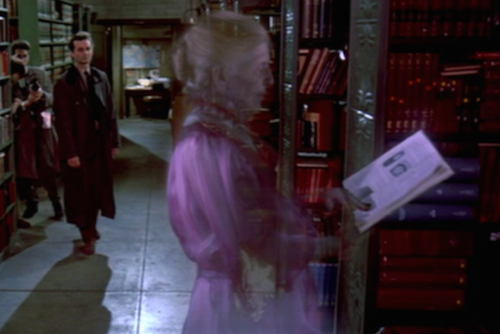
Image Credit:
Debating what new technologies mean for old libraries is one of the Internet's favorite obsessions. On one side of the issue there are the Defeatists who think that every innovation is a nail in the library's metaphorical coffin. When Florida Polytechnic University recently announced that it had opened an entirely bookless library, the Defeatists took to Twitter to voice their disappointment:
As the US continues to eviscerate #highered, Florida Polytechnic opens a library w/ no physical books...
http://t.co/tCKrlGnPfu
— Mike Bess (@mkbess) August 31, 2014
A bookless library: http://t.co/0JdTtR7wUp (If it won't have books, can't we at least call it something besides "library"?) @prufrocknews
— Gracy Olmstead (@gracyolmstead) August 26, 2014
I appreciate this second tweet because it reminds me of the complaints my undergraduate institution received when it announced that it was going to renovate its library to accommodate a coffee shop. Is a library still a library when it buys subscriptions to e-books in lieu of the books themselves? When its employees mix lattes instead of hissing their patrons into silence? The Defeatists think not.
On the other side of the issue there are the Optimists. They tend to claim that literature has an enduring appeal that will survive the transfer from paper to PDF and that libraries like the one at Florida Polytechnic are wisely evolving to meet the needs and interests of modern readers. They also tend to defend their perspective using statistics that are as catchy as they are inconclusive: The majority of millennials know where their local library is! In the United States there are more libraries than there are McDonald's!
I think it is because I am more Optimist than Defeatist that I decided to require that the undergraduates in the "Rhetoric of Country Music" course that I am teaching this semester conduct research using library books.
Yes, it surprised me when the mostly junior and senior students who enrolled in my class reported that they had neither visited the main branch of the University of Texas library system nor checked out even one of UT's more than eight million books. But I recognize that my own sentimental attachment to libraries comes more from my grandmother taking me to one for puppet shows every week when I was a child than from finding them useful as an adult (though I do). As a Ph.D. student, I enjoy accessing materials instantly through the library's e-books and online databases and have consumed my weight many times over in library coffee shops. I would not say either of these innovations has damaged my appreciation for books.
The project I assigned had students work in groups to research a subgenre of country music (i.e., honky tonk, rockabilly, Outlaw). My aim was to give students experience researching with books, but also to ensure that they were engaging robust scholarly texts. My research for the syllabus led me to believe that the best research about country music is, in fact, printed in books. The field's leading scholars tend to publish their work in edited collections rather than referreed journals, and the Internet sources that rank highest in Google searches are typically promotional and not ideal for student research.
At first my inner Defeatest wanted to plan a lesson that would climax in what César Salgado calls a "'Eureeka!' moment" ("Hybridity in New World Baroque Theory," 1999). After my 75-minute class I hoped my students would throw their hands into the air and pledge to apply for cards at the ten nearest libraries. Such expectations, I realized as I prepared the Research Guide, were as impractically high as they were misguided.
The truth is that modern libraries do not necessarily want their patrons visiting them in the flesh, let alone disturbing the stacks searching for particular titles. At UT, students can print whole chapters from a variety of e-books and even request that sections from physical books be scanned and delivered to them electronically. Students who want to borrow actual books or CDs, DVDs, and other materials that are impossible to scan can click the "Pick It Up!" button and have these items delivered to the hold desk at any library location they choose. UT is by no means the only library to offer these kinds of services.
The primary challenge that my students faced was determining which books or sections of books they wanted. At UT, students placing scan requests are required to specify exact titles and page numbers, but since the library's catalog does not consistently record this information, it has to be located elsewhere. The fact that Amazon, Google Books, and publishers' websites provide these details makes a good argument for digital innovations actually helping users take advantage of libraries' print resources.
After completing this project most of my students still have not set foot in the UT library nor checked out a book. For the record, I consider this a somewhat disappointing success. But more importantly, they have written extensive webpage-essays synthesizing the library's best research on country music--and in a remarkably brief period of time. I would love to know what you think about their work.
Optimist that I am, I think bookless may be alright.

